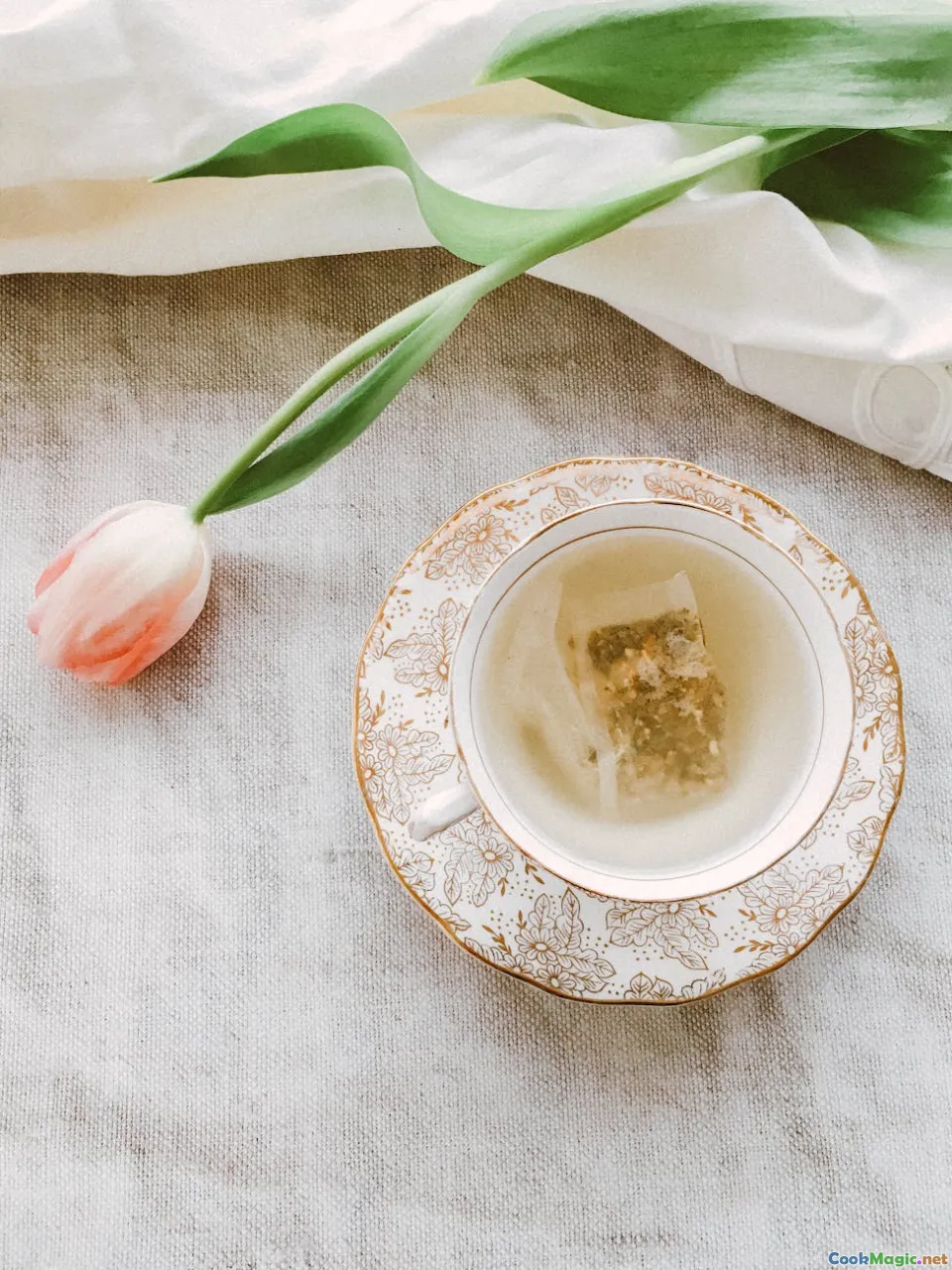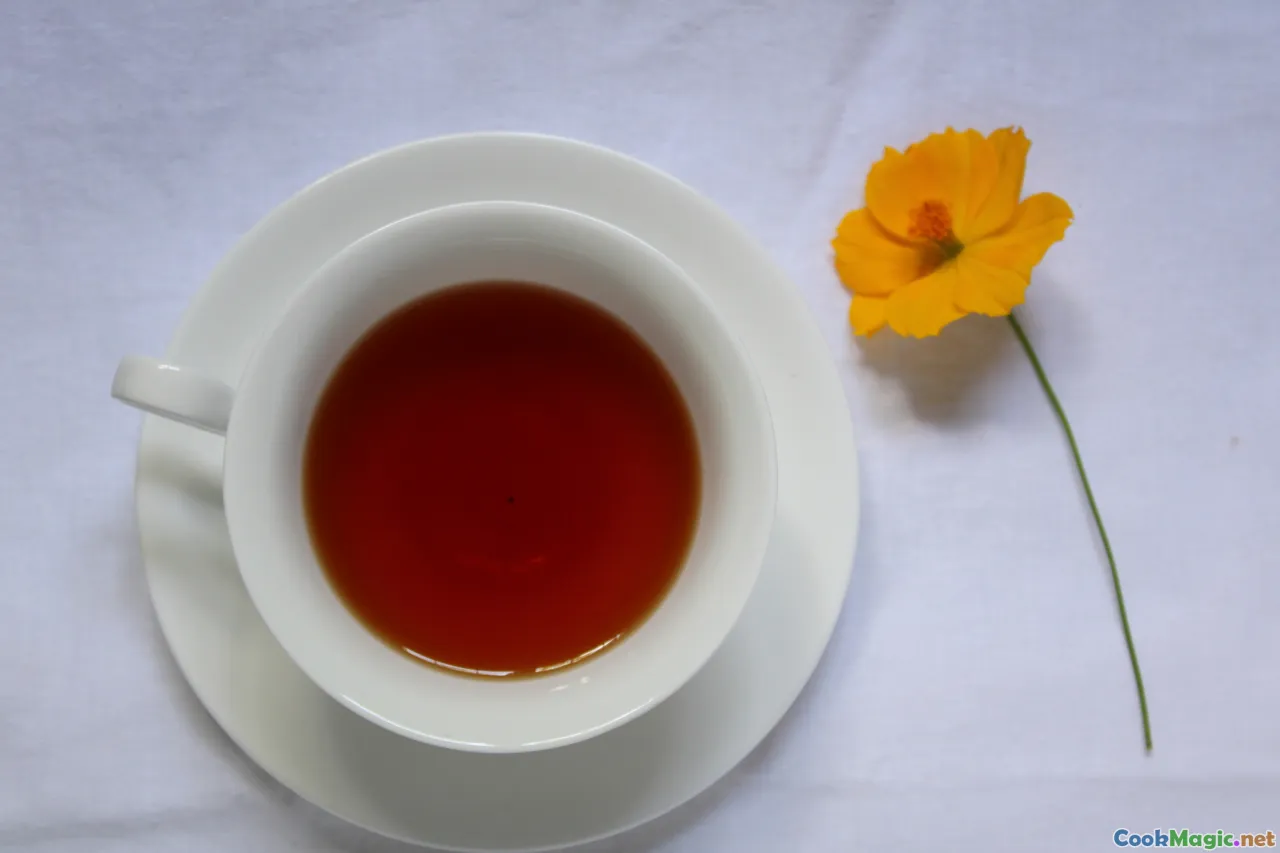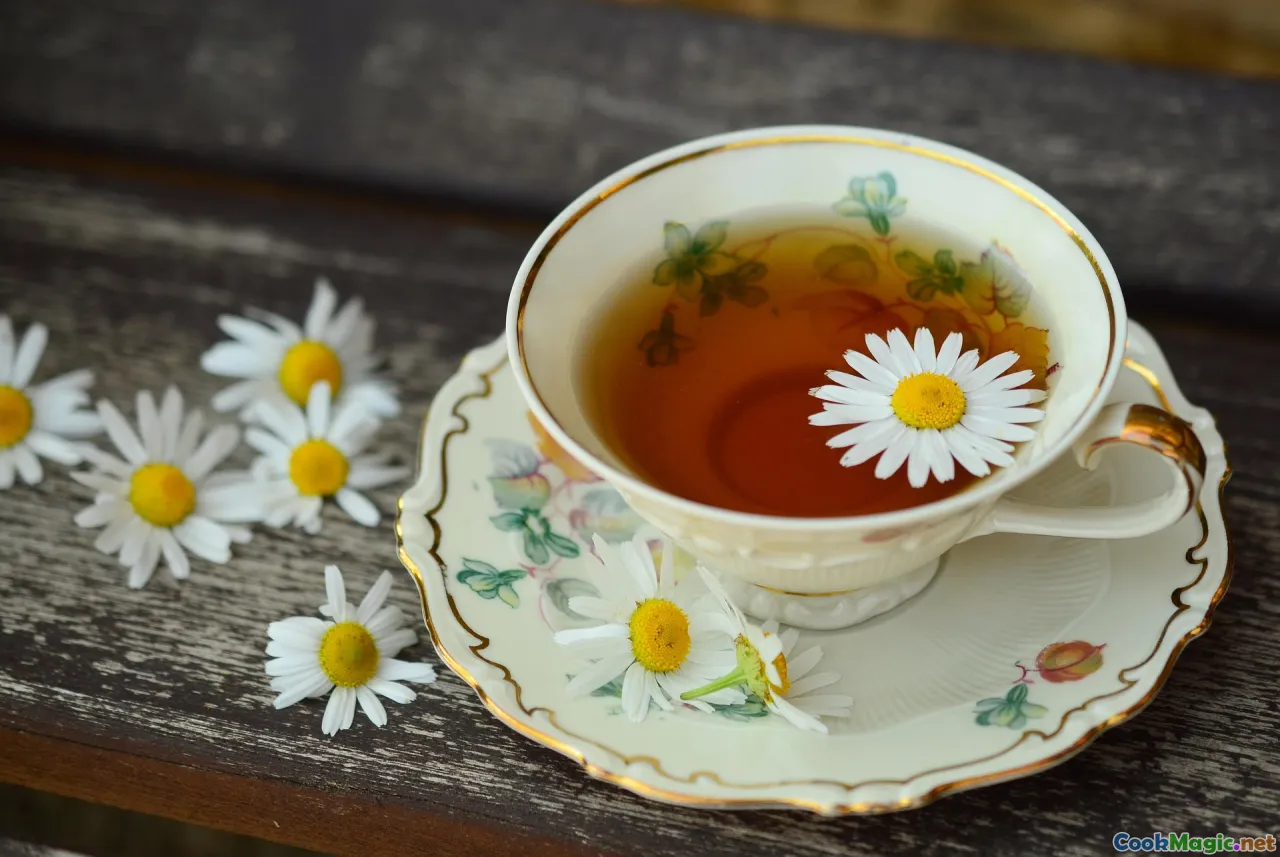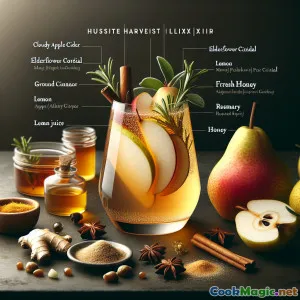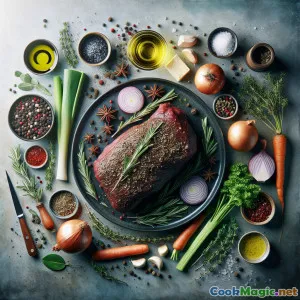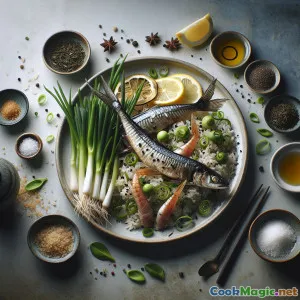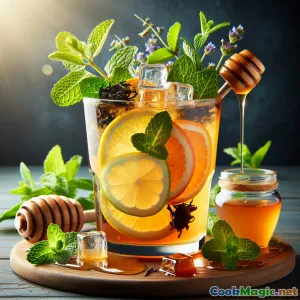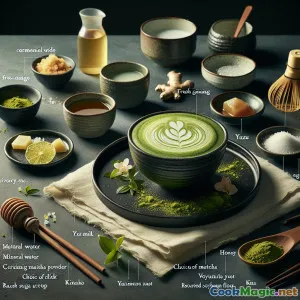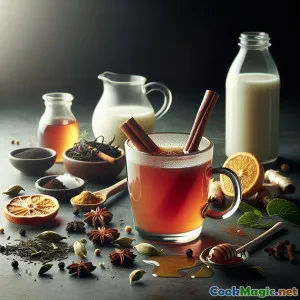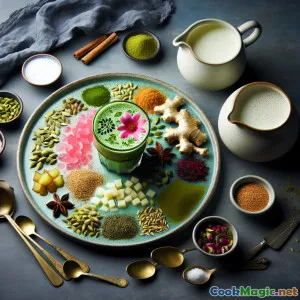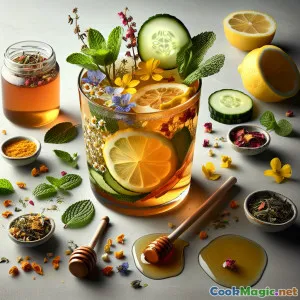
Temple Bell Spring Tea: A Floral English Delight
(0 Reviews)Ingredients
-
2 tsp Dried chamomile flowers
(Preferably loose leaf for best flavor)
-
1.5 tsp Dried elderflowers
(Lends a delicate, honeyed aroma)
-
0.5 tsp fresh lemon zest
(Organic, finely grated)
-
2 tsp English honey
(Choose a mild, wildflower honey)
-
5 leaves Fresh Mint Leaves
(Reserve extra for garnish)
-
440 ml Boiling water
(Freshly boiled, just off the boil)
-
1 tsp Dried rose petals
(Edible, unsprayed roses only)
-
2 ribbons Cucumber ribbon
(Thinly sliced, for garnish)
(Preferably loose leaf for best flavor)
(Lends a delicate, honeyed aroma)
(Organic, finely grated)
(Choose a mild, wildflower honey)
(Reserve extra for garnish)
(Freshly boiled, just off the boil)
(Edible, unsprayed roses only)
(Thinly sliced, for garnish)
Nutrition
- Servings: 2
- Serving Size: 1 cup (220ml)
- Calories: 42 kcal
- Carbohydrates: 11 g
- Protein: 0.2 g
- Fat: 0 g
- Fiber: 0.3 g
- Sugar: 9 g
- Sodium: 2 mg
- Cholesterol: 0 mg
- Calcium: 13 mg
- Iron: 0.2 mg
Instructions
-
1 - Prepare Florals:
Lightly crush chamomile and elderflowers between your fingers to release fragrances. Combine with dried rose petals (if using) in a large teapot or French press.
-
2 - Add Citrus & Mint:
Add lemon zest and three mint leaves to the floral blend in the teapot.
-
3 - Steep & Brew:
Pour boiling water over ingredients. Cover and let steep for 7 minutes for a fullspring flavor.
-
4 - Strain & Sweeten:
Strain the tea into cups. Gently stir in English honey until dissolved.
-
5 - Garnish & Serve:
Garnish each cup with a cucumber ribbon and a mint leaf. Serve immediately and enjoy the fragrant bouquet.
Lightly crush chamomile and elderflowers between your fingers to release fragrances. Combine with dried rose petals (if using) in a large teapot or French press.
Add lemon zest and three mint leaves to the floral blend in the teapot.
Pour boiling water over ingredients. Cover and let steep for 7 minutes for a fullspring flavor.
Strain the tea into cups. Gently stir in English honey until dissolved.
Garnish each cup with a cucumber ribbon and a mint leaf. Serve immediately and enjoy the fragrant bouquet.
More About: Temple Bell Spring Tea: A Floral English Delight
Temple Bell Spring Tea: An Ode to English Florals and Seasonal Awakening
Temple Bell Spring Tea is a unique tribute to the ethereal sounds, fragrances, and ambiance of an English springtime awakening. Its roots are woven into the historic ritual of afternoon tea, iconic in England, but Temple Bell Spring Tea takes inspiration a step further, infusing floral motifs symbolic of renewal, reverence, and vitality.
This drink is an aromatic harmony of classic herbal blossoms–particularly chamomile and elderflower–joined by refreshing hints of lemon, cooling mint, rose petals, and finished with the subtle nectar of wildflower honey. Those able to source edible, untreated rose petals and cucumber ribbons are rewarded with a presentation reminiscent of lavish English garden parties taking place near ancient churchyards, with the gentle clang of sonic temple bells accidentally heralded by a passing spring wind.
History and Cultural Significance
English afternoon tea emerged in the mid-19th century at the behest of Anna Russell, Duchess of Bedford, and has since evolved to include a remarkable range of delicately curated drinks and even tisanes (herbal teas) designed to invigorate body and spirit. Herbal infusions became popular, adopting herbs and florals believed to induce clarity and calm. Chamomile and elderflower, both ancient healing herbs, underpin Temple Bell Spring Tea’s comforting profile, while rose and mint have long been symbols of hospitality and fresh renewal in English culinary tradition.
Temple Bell Spring Tea channels the sensory overload of April or May, with temple bells (actual or metaphorical) resonating in the background. The floral blend celebrates local wildflowers often found in the British countryside—the kinds our grandmothers may have steeped to welcome guests or soothe anxious spirits on cool, verdant afternoons.
Unique Aspects & Flavor Notes
What sets this tea apart is the layering of delicately crushed blossoms, invoking a heady spring scent. While traditional English tea leans to strong, malty leaf tea with milk or lemon, this herbal counterpart offers a caffeine-free, mild yet complex bouquet perfect for calming afternoons or as a gentle start to festive brunches.
Fresh lemon zest adds spikes of brightness, balanced by clean-tasting mint and gentle, honeyed edges–a reflection of temperate English woods in bloom, after fresh rain has tickled all varieties of growing things to spring forth. Optional rose petals underscore its ‘temple bell’ nature: gentle, floral, resonant, meditative.
Tips & Notes
- Use organic florals for best flavor and purity.
- Dried elderflowers can be found in health shops or online; if unavailable, additional chamomile or a pinch of dried lavender makes an enchanting substitute.
- Adjust honey to taste for more or less sweetness and swap for agave for a vegan option.
- For a chilling twist, the mixture is wonderful served over ice with a few muddled strawberries.
Serving Suggestions
Temple Bell Spring Tea is lovely alongside a classic English tea cake, scones, or delicate finger sandwiches. For spring picnics, decant the chilled infusion with slices of cucumber and rose for beautiful presentation.
Personal Thoughts
Experimenting with English botanicals brings a sense of connection to both the rural and ceremonial—they bridge childhood memories, country outings, elders’ home remedies, and modern wellness trends. Temple Bell Spring Tea, in particular, offers an unforgettable bouquet evocative of English countryside spirituality, the brief but radiant time when nature and human communities celebrate new beginnings together.
Take this creation as your invitation to pause, steep, and tune in: imagine faroff bells, awakening blooms, and the gentle, hospitable hush for which the English are endlessly renowned.

